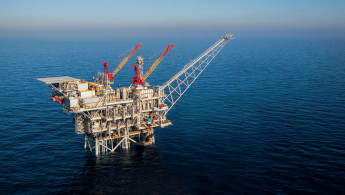Egypt says gas find will not stop Israeli imports
The recent discovery of a massive natural gas field off the coast of Egypt will not affect private-sector imports of gas from Israel and Cyprus, Egypt's oil minister has said.
Sherif Ismail told Reuters that despite the newly discovered Zohr gas field, which has been hailed as “a world class supergiant gas discovery”, Egypt’s potential deals to import Israeli gas are not under threat.
“Any negotiations between private companies in Egypt and in the eastern Mediterranean, and by this I mean Israel and Cyprus, will not stop," Ismail said.
|
Any negotiations between private companies in Egypt and in the eastern Mediterranean, and by this I mean Israel and Cyprus, will not stop - Sherif Ismail |
“Eni is expected to deliver a development plan by the end of October detailing the number of wells it will dig, and production [from Zohr] will likely begin at the start of 2018. Analysts say this timeline is ambitious and that at least in the short run Egypt may still look to Israel’s Leviathan to fill its natural gas needs,” the oil minister added.
He said that Egypt will look to satisfy local demand first before looking into exporting gas, adding that he thought it was unlikely that this target will be reached before 2020.
Egyptian Petroleum Ministry spokesman Hamdi Abd al-Aziz said on Tuesday that gas from the Zohr field will be used to meet domestic demand for a period of 10 years.
“We hope to become self-sufficient by 2020,” he added.
For Egypt, the Zohr field offers hope in the country's battle with chronic, politically sensitive energy shortages.
The newly found gas field has raised concerns in Israel's gas industry that its Leviathan field would lose a deal to supply gas to a liquefied natural gas plant in Egypt.
Ismail's comments may improve sentiment on the Israeli stock market where leading energy companies on Monday suffered losses of more than 4.5 billion shekels ($1.1bn) after news of the Zohr discovery.
Italian energy giant Eni reported on Sunday the discovery of a supergiant gas field off the Egyptian coast that could hold a potential of 30 trillion cubic feet (850 billion cubic metres) of natural gas, making it the biggest discovery in the Mediterranean and the world's 20th largest.
Eni will hold a 35 percent share of Zohr's reserves, with the rest claimed by the state, the Ministry of Petroleum announced earlier this week.
Zohr potentially has 40 percent more gas than what was discovered in Israel’s Leviathan gas field.
Gas imports from Israel have been unpopular in Egypt because of the Arab-Israeli conflict, Israel has long been eyeing Egypt as an export market for its new reserves it has discovered.
Between 2005 and 2011, Egypt exported natural gas to Israel at a reduced price but due to persistent natural gas shortages in Egypt and attacks on the pipeline by insurgents, the gas supply to Israel was suspended indefinitely while the supply to Jordan was resumed, but at a rate substantially below the contracted amount.





 Follow the Middle East's top stories in English at The New Arab on Google News
Follow the Middle East's top stories in English at The New Arab on Google News
![Netanyahu furiously denounced the ICC [Getty]](/sites/default/files/styles/image_330x185/public/2024-11/GettyImages-2169352575.jpg?h=199d8c1f&itok=-vRiruf5)
![Both Hamas and the Palestinian Authority welcomed the ICC arrest warrants [Getty]](/sites/default/files/styles/image_330x185/public/2024-11/GettyImages-2178351173.jpg?h=199d8c1f&itok=TV858iVg)
